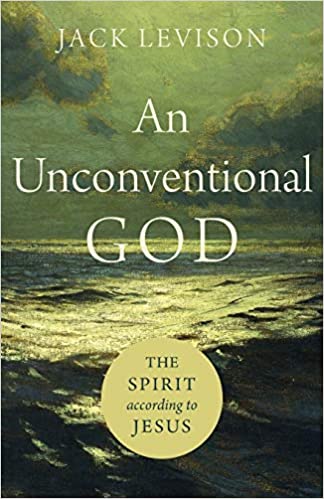BEN: I found your reading of Matthew’s birth narrative in light of Isaiah 63 and Ps. 51 interesting, but was unconvinced that the Evangelist was talking about Mary’s own holy spirit. The absence of the definite article in Greek happens for a variety of reasons, including the mere position of the noun in the sentence, whether it is before or after the verb and whether it is the subject or object of the verb….. but it is an interesting theory. I found especially difficult the notion that the phrase ‘your holy spirit’ in Ps. 51 might refer to David’s spirit, rather than Yahweh’s on a parallel with your reading of the case with Mary. And in any case, if that is what Matthew meant, Luke would seem to totally disagree when he refers to the Spirit overshadowing Mary presumably in protection. How would you sort this out?
JACK: Great question, Ben, and not at all easy to answer. What strikes me about Matthew is how precise he is. He is exacting. So the absence of a definite article at this point, for whatever reason, in a text that is otherwise marked by precision, attracted my attention. Why this opening?
Naturally, I answered this question, as Matthew might have, in light of the Old Testament. And two texts—two different texts—commended themselves, both of which refer to a or the Holy Spirit. Isaiah 63 sees the Holy Spirit in community as a deliverer of Israel. Psalm 51 sees the Holy Spirit in an individual. They are very different, and they open contrasting vistas about how to understand the Spirit in Matthew’s birth narratives—either as the Holy Spirit understood as a person or a holy spirit in Mary that makes her the perfect woman to bear the baby Jesus. Given the openness of Matthew’s syntax, either is possible, so I explored both, though without coming down on either.
As to Psalm 51, I do think it can be argued that David understood the taking of the Holy Spirit from him as the advent of death. I made this case at length in Filled with the Spirit; I have little doubt that the Holy Spirit in Psalm 51 is the Holy Spirit in David (or whoever composed this psalm) from birth to death. “Take not thy Holy Spirit from me” is a plea to remain alive. If we need further evidence of this interpretation, it lies in the Septuagint translation of Psalm 51, which is rife with the language of Stoicism and moves in the direction I have suggested: the spirit in David is not a holy spirit separate from him but the lifelong spirit in him. I have looked carefully at the Greek translation in The Spirit in First Century Judaism. If Matthew leaned on the Septuagint at this point, then he readily found his cue in the Greek translation of Psalm 51, making the move to Mary’s holy spirit a rather slender and sensible one.
Finally, you say that Luke disagrees with Matthew. I’m not sure I would frame it this way because there is precious little evidence that Luke knew or used Matthew’s gospel. (I’m not up on synoptic gospel scholarship, but that is my impression.) It might be better to say that Luke took this experience in another direction. And what direction was that? Another Old Testament background, of course! He uses the word, overshadow, which recalls the cloud—perhaps the glory, too—that overshadowed the tabernacle. If for Matthew, Jesus’ birth is a genesis, recalling creation, for Luke, it is a liberation, recalling the exodus.
What this means, I think, is that Matthew and Luke’s moves in the birth narratives, at least when it comes to the Holy Spirit, are not principally theological. They are biblical. (I know that is a false dichotomy, but I am sure you get the point, and I hope your readers will.) They set the story of Jesus in Old Testament contexts—and make it part of the magnificent trajectory of God’s great works throughout Israel’s history. And that is where our understanding and experience of the Holy Spirit should begin, as well.












